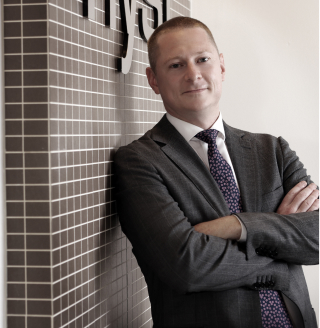The nasty news, gossip and scandal that started with Hollywood heavyweight Harvey Weinstein has grown into a tsunami of distasteful allegations of misogynistic and worse sexual misconduct in the United States, reaching to the very upper echelons of the industry. It has been fascinating to watch the reaction from all corners of the community, one that perhaps marks a pivotal turning-point in cultural attitudes regarding the latitude we as a society will permit those in positions of power. It has already seemingly sounded the death knell for the once stellar careers of more than a few noted luminaries in Hollywood and Washington.
And just as Australia so often tends to follow in the shadow of American popular culture, it seemed only a moment in time before this tidal wave washed up on our own sunny shores. Don Burke, television’s ever so popular boy in the backyard, found himself in the firing line earlier this week. Undoubtedly, he won’t be the last to feel the heat of this issue. If reports prove correct, it would seem few who have walked in the Halls of Power would likely express too much shock, outrage, or even surprise upon hearing the type of crass and unseemly behavior currently being complained of. In some circles, perhaps, bad behaviour has become the norm and not the exception. And that may be why, despite very few of these accusations having been proven to any acceptable standard, so many people, rightly or wrongly, appear willing to accept their veracity.
The question is, will this saga play out to the same level here as it has in America and, if so, who will be next to be named?
Of course the legal landscape for such lurid scuttlebutt is unquestionably a rockier road for complainants here in Australia than it is in the land of the stars and stripes. In Australia, those who make allegations which carry defamatory imputations do not enjoy the same protections afforded to Americans. In the US the onus is on the person defamed to prove the defamatory statements are false, whereas here in Australia it’s up to the person making the defamatory statement to prove its veracity on the balance of probabilities.
It wasn’t always like that in the States. Prior to 1964, America’s libel laws in many ways mirrored our own. A defamatory statement was presumed false, and damage resulting from the statement was also presumed. Those principles however were seen as a direct threat to free speech and free press. The U.S. Supreme Court eventually concluded they were inconsistent with the First Amendment, following the landmark case of New York Times vs. Sullivan, the result of which threatened to deter media outlets from reporting matters related to the civil rights movement. Following that decision, the Supreme Court reformed defamation laws with a view to unshackling the American press, and in turn opened the gates for the gossip columnists.
Here in Australia we have no Bill of Rights, and no First Amendment. So whilst we should no doubt strap ourselves in for a fresh wave of accusations of homegrown indecency, our expectations should perhaps be tempered a tad in light of our comparatively stauncher civil protection from unjustified defamation.
It was not surprising to see reports yesterday the beleaguered Mr Burke has hired himself a well-known defamation lawyer to protect his interests. Given the apparent avalanche of accusations he is facing, it will be an undoubtedly interesting contest.











